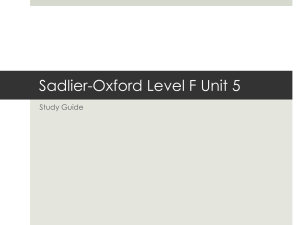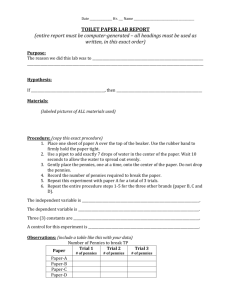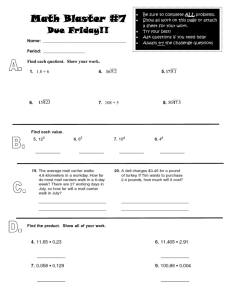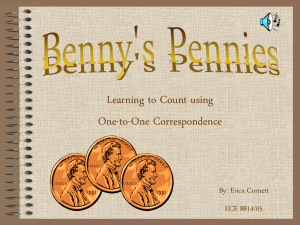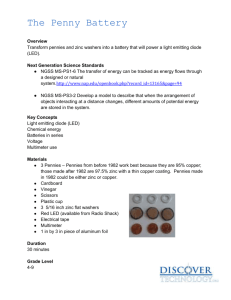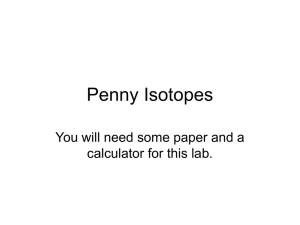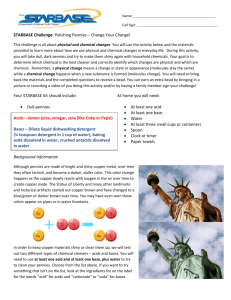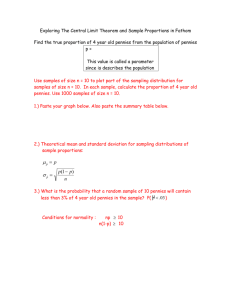Experiment 3-2.0
advertisement
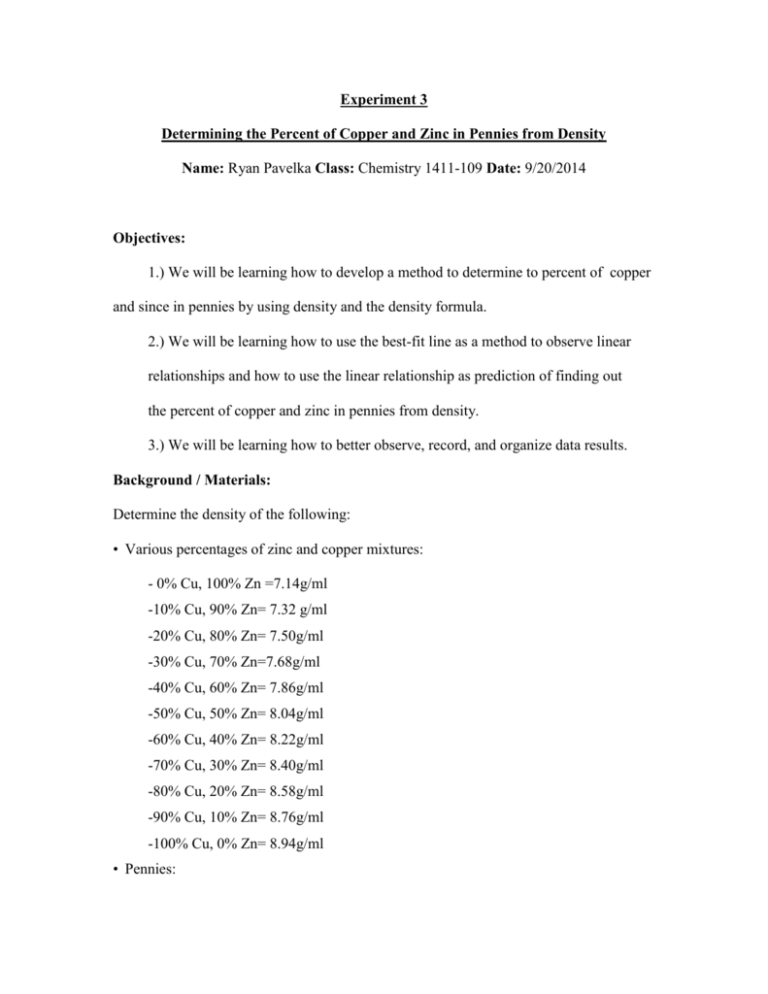
Experiment 3 Determining the Percent of Copper and Zinc in Pennies from Density Name: Ryan Pavelka Class: Chemistry 1411-109 Date: 9/20/2014 Objectives: 1.) We will be learning how to develop a method to determine to percent of copper and since in pennies by using density and the density formula. 2.) We will be learning how to use the best-fit line as a method to observe linear relationships and how to use the linear relationship as prediction of finding out the percent of copper and zinc in pennies from density. 3.) We will be learning how to better observe, record, and organize data results. Background / Materials: Determine the density of the following: • Various percentages of zinc and copper mixtures: - 0% Cu, 100% Zn =7.14g/ml -10% Cu, 90% Zn= 7.32 g/ml -20% Cu, 80% Zn= 7.50g/ml -30% Cu, 70% Zn=7.68g/ml -40% Cu, 60% Zn= 7.86g/ml -50% Cu, 50% Zn= 8.04g/ml -60% Cu, 40% Zn= 8.22g/ml -70% Cu, 30% Zn= 8.40g/ml -80% Cu, 20% Zn= 8.58g/ml -90% Cu, 10% Zn= 8.76g/ml -100% Cu, 0% Zn= 8.94g/ml • Pennies: We will be using 5, 10, 20 and 30 PRE-1982 pennies. We will be using 5, 10, 20 and 30 POST-1982 pennies. • We will compare the precision and accuracy of our results to literature values for pre and post 1982 pennies in various amounts. Procedure: 1.) Acquire 5, 10, 20, and 30 pre/post 1982 pennies 2.) Separate the pennies into pre/post 1982 groups 3.) Find the mass of all the pennies separately and record your results 4.) Find the volume of all the pennies separately and record your results 5.) After finding the mass and volume, use the density formula to determine the densities for all of the pennies. 6.) Compare the densities that you found for the pennies to the graph of the accepted values of the copper/zinc percentages and densities with them Steps to Determine Density of Pennies: To determine the density of the pennies, we know that the 100% density of zinc is 7.14g/ml and the 100% of copper is 8.94g/ml, next determine the exact percentage of zinc and copper in each penny by using the following formula: Density of the penny= (density of zinc x % of zinc) + (density of copper x % of copper) Trends: According to my data for pre and post 1982 pennies, as the penny count went from 10 to 20 pennies the average density went up as well, but when the penny count increased to 30 the average density shrunk dramatically. Discussion: In the lab, my partner and I got several blocks of zinc and copper and measured the mass and volume of each of them individually. Later we were able to calculate the densities because of the previous measurements we found, and we were also able to calculate the percentage of copper. Later we grabbed pre/post 1982 pennies and did the same procedure as the zinc and copper bars by finding the mass of 10, 20, and 30 pre/post 1982 pennies, then we found the volume of the pennies which led to the densities of the pennies. The data we collected is reasonable in a sense until we got to the 30 pennies which showed a decrease in density. My lab partner and I must have taken measurements wrong showing our low accuracy and precision.
